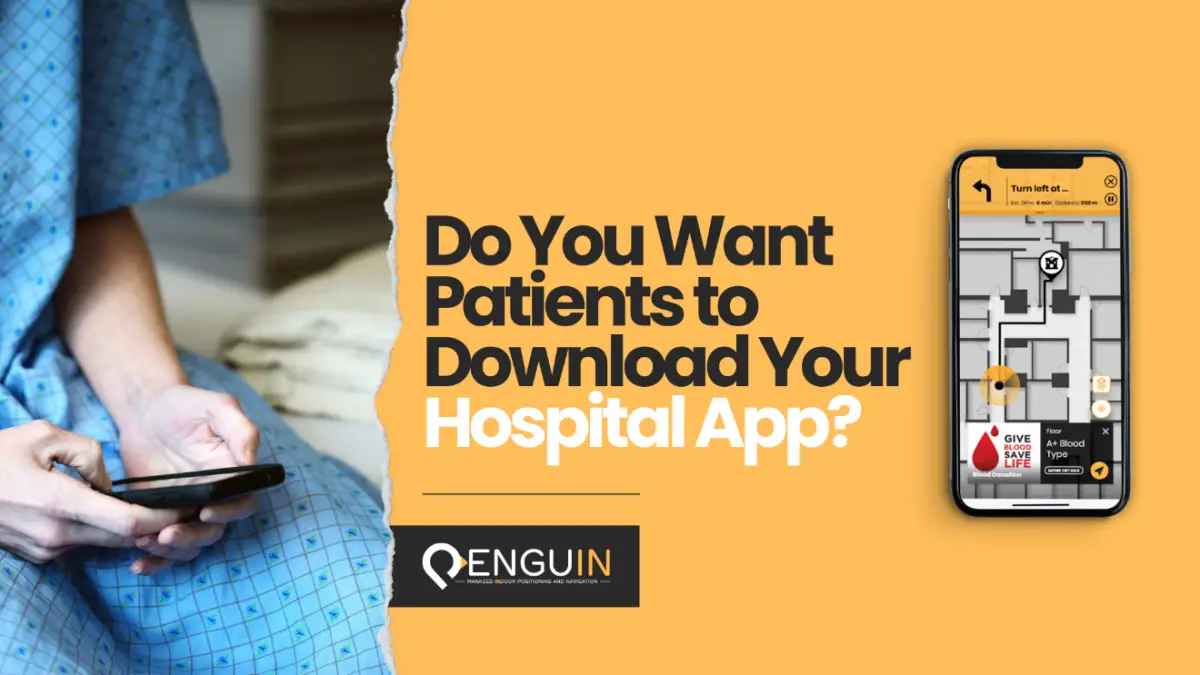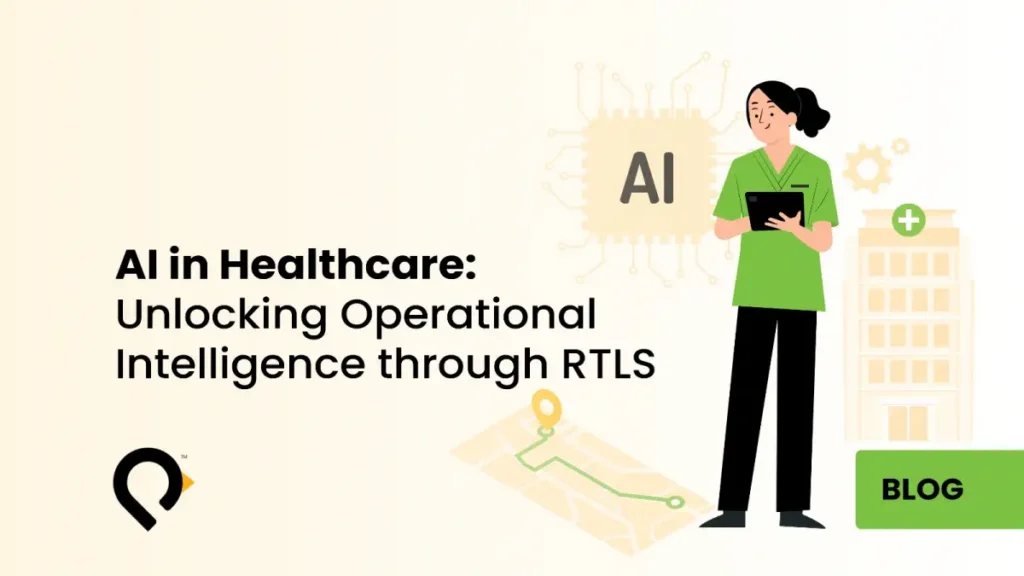
Hospital Mobile Apps: Boosting Adoption and Enhancing Patient Outdoor – Indoor Navigation Experience
Healthcare institutions are increasingly leveraging technology to enhance patient experiences and streamline services. One powerful tool is the hospital mobile app — two-thirds of the largest U.S. hospitals already offer one [Accenture, 2016].
These apps benefit both patients and staff. But building a successful app is only the beginning. To maximize value, adoption must be prioritized. This article explores strategies to drive uptake and highlights how Penguin Location Services integrates AI in location services, UWB positioning systems, and modern wayfinding technology to elevate patient care.
Building the Hospital Mobile App: What to Keep in Mind
1. Understanding User Needs
Patient experience should come first. Apps must simplify health management, appointment booking, and access to data. At the same time, healthcare staff should benefit from tools that reduce workload and streamline daily tasks.
2. User-Centric Design
Apps need a simple, intuitive interface that works for diverse patient demographics. A well-designed hospital tracking app encourages adoption and ongoing use.
3. Privacy and Security
Patient trust depends on strict data protection. Strong cloud services and centralized security measures are essential to safeguard sensitive medical information.
Value-Added Features that Drive Adoption
-
Patient-Centric Records: Access to medical history, test results, and reminders.
-
Appointment Management: Real-time scheduling, rescheduling, and cancellations reduce no-shows.
-
Telemedicine: Virtual visits and consultations empower patients and expand access to care.
-
Outdoor – Indoor Navigation: Integrated wayfinding technology ensures patients can move seamlessly from parking lots to hospital entrances and directly to their appointments, reducing anxiety and saving time.
-
UWB Positioning Systems: Ultra-wideband precision enables real-time tracking of staff, patients, and assets, ensuring efficiency and safety during critical scenarios like Code Blue emergencies.
These features transform apps into more than digital tools — they become patient engagement platforms powered by AI in location services.
Strategies to Market Your Hospital App
To ensure adoption, hospitals must actively promote their apps. Some proven strategies include:
-
Feature Branding: Spotlight individual features like Outdoor – Indoor Navigation to highlight unique value.
-
Wi-Fi Landing Pages: Encourage downloads when patients connect to hospital Wi-Fi.
-
QR Codes: Simple, instant access to the app store.
-
User Reviews: Build trust by showcasing positive experiences.
-
Staff Advocacy: Train nurses, physicians, and assistants to recommend the app to patients.
-
Print Promotion: Flyers, posters, and cards placed in waiting areas drive awareness.
Penguin Location Services supports hospitals not only with wayfinding technology but also with adoption strategies that increase downloads and ensure lasting engagement.
Partnering with Penguin Location Services
At Penguin Location Services, we specialize in AI in location services, UWB positioning systems, and advanced wayfinding technology that enhance hospital apps. From Outdoor – Indoor Navigation to RTLS-enabled staff tracking, our solutions empower healthcare institutions to deliver better patient experiences and more efficient workflows.
🚀 Ready to enhance your hospital app with next-generation AI-powered location services? Schedule a demo with Penguin Location Services today.




